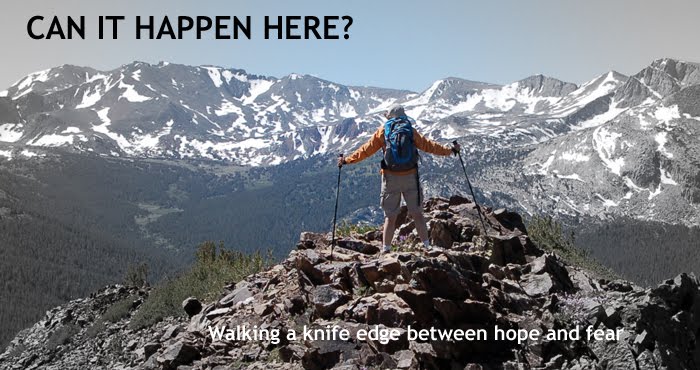
It seems to be nearly impossible for people in the United States to say much sensible about the upheavals in Ukraine. We tend to begin from bottomless, ahistorical ignorance. Ceaseless peace advocate David McReynolds offers one thoughtful analysis. Here's an important section:
Read it all here.The context of the Ukrainian Crisis:
... I want to step back away from the immediate crisis of Ukraine, for a look at the history which dictates much Russian policy - under Putin as it did under Stalin.
Russia has no natural barrier - no river, no mountain range - to guard it on its Western border. It has suffered invasion from the West three times in recent memory - under Napoleon and then twice under the Germans. In the last invasion, under Hitler, between 25 and 27 million Soviet citizens lost their lives. All the factories, dams, railroads. towns and cities West of a line from Leningrad in the North to Moscow to Stalingrad in the South were destroyed. Americans make much of 9.11 (and I don't make light of it) but for Russia it was not just a handful of buildings in one city which were destroyed - it was entire cities, leveled. And then with the wounded to care for, the orphans, the widows.
Americans have never understood what the war meant to Russia and why, after the war, the Soviets sought to build a "protective band" of territory between itself and Germany. This was Eastern Europe, which under the iron boot of Stalin became "people's democracies" or "presently existing socialism".
Something Americans (perhaps including our President and the Secretary of State) have forgotten was that Russia wanted to make a deal with the West. It had made peace with Finland, which (again, memories are short and we have forgotten this) fought on the side of the Nazis. The Soviets withdrew from Austria after the West agreed that Austria, like Finland, would be neutral.The Soviets very much wanted a Germany united, disarmed, and neutral. Stalin did not integrate the East Germany into the Eastern European economic plans for some time, hoping he could strike that deal. But the West wanted West Germany as part of NATO, and so the division of Germany lasted until Gorbachev came to power.
I would have urged radical actions by the West in 1956 when the Hungarian Revolution broke out - it was obvious that if the Soviets could not rule Eastern Europe without sending in tanks (as they had already had to do in East Germany in 1953), they posed no real threat of a military strike at the West.
What if we had said to Moscow, withdraw your tanks from Hungary, and we will dissolve NATO, while you dissolve the Warsaw Pact.
But of course the West didn't do that. The US in particular (but I would not exempt the Europeans from a share of the blame) wanted to edge their military bases to the East. When the USSR gave up control of Eastern Europe, the US pressed for pushing NATO farther East, into Poland and up to the borders of Ukraine.
Pause for a moment and assume that revolutionary events in Canada had meant Canada was about to withdraw from NATO and invite in Russian military advisers.
What do you think US response would be?
Why are we surprised that Putin has said, very clearly, "no closer - back off".
In this case Moscow holds the high cards. Europe is not going to war over Crimea. And it needs Russian gas. Sanctions will cut both ways - Europe is very cautious and, irony of ironies, it is Germany which is behaving with the greatest diplomacy.
If, out of all this, US planners accept the fact that there are real limits to how far East NATO can push, then the crisis will have helped us come to terms with reality. It may even lead us to consider dissolving NATO!

























